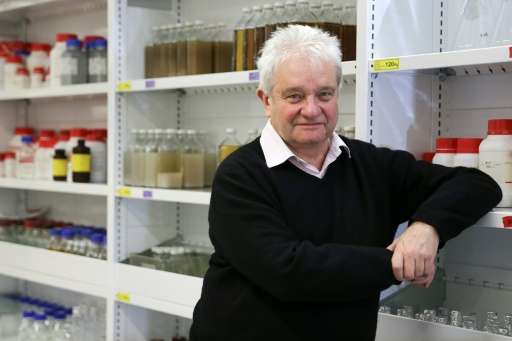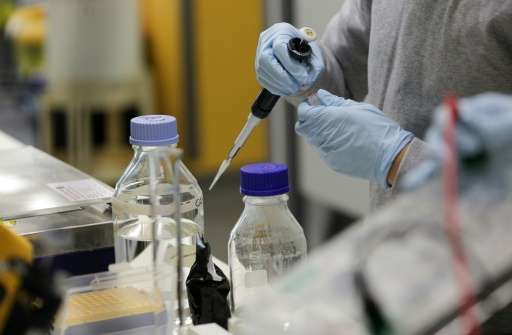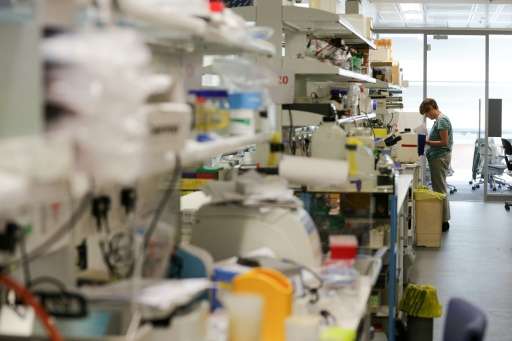Funding, staffing woes for UK science after Brexit vote

The Nobel Prize-winning head of Europe's biggest biomedical research centre in London said that Britain's vote to leave the EU is worrying his European employees and will hit "extremely important" funding.
Paul Nurse, head of the world-renowned Francis Crick Institute, told AFP that EU funds account for around £5 million a year (5.9 million euro/$6.6 million), or around five percent of his annual budget.
"It's money we can use in a wide variety of ways," he said in an interview at the institute's new futuristic £650-million headquarters near the Eurostar terminal at St Pancras, which was inaugurated this week.
"It's not tied down in particular objectives and that's extremely important... when you're trying to run an innovative research institute," said Nurse, who won a Nobel Prize in 2001 for his work on cell cycles.
Nurse said 55 percent of the institute's post-doctoral researchers were from other parts of the European Union and some of them were concerned about their future status.
"If we increase the bureaucracy that has to be overcome to get scientists to work here, that will be an issue.
"Maybe more important is the risk of a xenophobic reputation spreading out there—that Britain is not open for international business," Nurse warned.
He is not alone in his concern and the government was forced to move relatively quickly last month to reassure the scientific community that funding for existing projects would remain in place, even after Britain leaves the EU.

Already feeling the effects
But Mike Galsworthy, programme director for the campaign group "Scientists for EU", said: "They didn't pledge a single penny beyond what they have to legally."
The group, which campaigned for Britain to stay in the bloc in the run up to the landmark referendum, said it had registered more than 400 cases of scientists who were already feeling the adverse effects of the June 23 vote to leave.
Some are British scientists who have been excluded from EU funding applications by continental colleagues because Britain may have left the bloc by the time the projects are realised.
Others are foreign researchers who are turning down posts in the UK following the referendum, while others who are already here are voicing concern about whether they should stay.
"We want to raise awareness of the fallout that's happening because that's the only way of persuading politicians to take action and move quickly," Galsworthy said, adding: "There's general nervousness".
Losing EU research funds would hit Britain's scientific community to the tune of almost £1 billion a year, technology consultancy Digital Science has calculated.
Britain is the second largest recipient of EU research funds after Germany, receiving £8 billion in the past decade compared to £8.3 billion for Germany.
"EU funds have been used to prop up and cover systemic issues with how we chose to fund research in the UK, both at a governmental and corporate level," said Digital Science's managing director Daniel Hook.

"Brexit, and the loss of EU funding for the UK's research base, represents a number of severe threats to leading British success stories in the research sector, unless the UK government makes up the shortfall," he said.
An opportunity?
Some have argued that leaving could be a good thing, led by the "Scientists for Britain" group which campaigned for the country to leave the EU.
John Ball, a Canadian-British geneticist and medicine professor at Oxford University, argued that position in a commentary in the Financial Times newspaper, though he did say that he would have nonetheless preferred to stay in the EU.
He said there could be benefits if the government lightened regulation like Switzerland and increased state aid like in the United States to allow more competition.
"Brexit offers opportunities to UK science," he said, blaming the EU for "needless regulatory hurdles associated with huge inefficiencies and delays".
But for Nurse, there is no "upside" to leaving the EU.
"We will get through it, we will be able to manage it," he said.
"I just wish we didn't have to do it."
© 2016 AFP




















